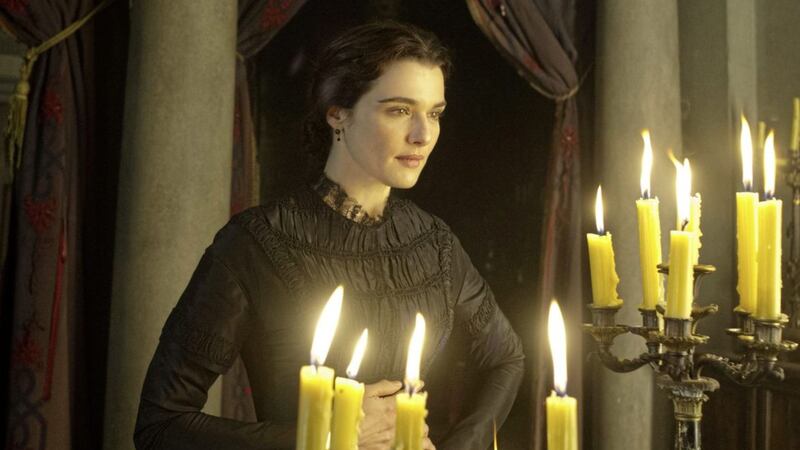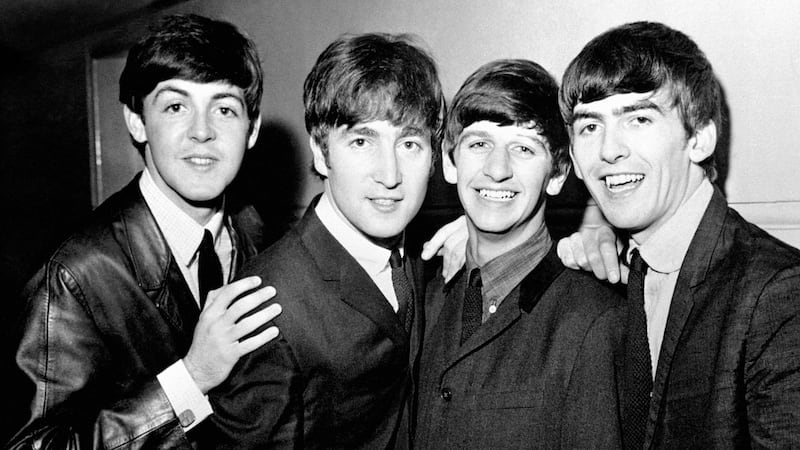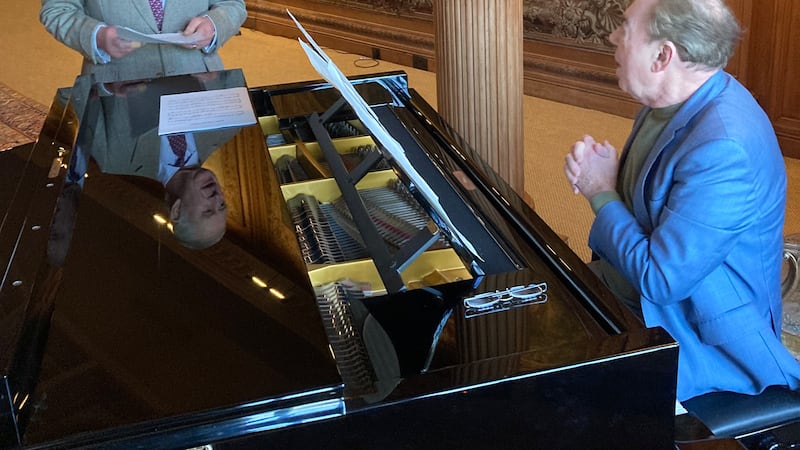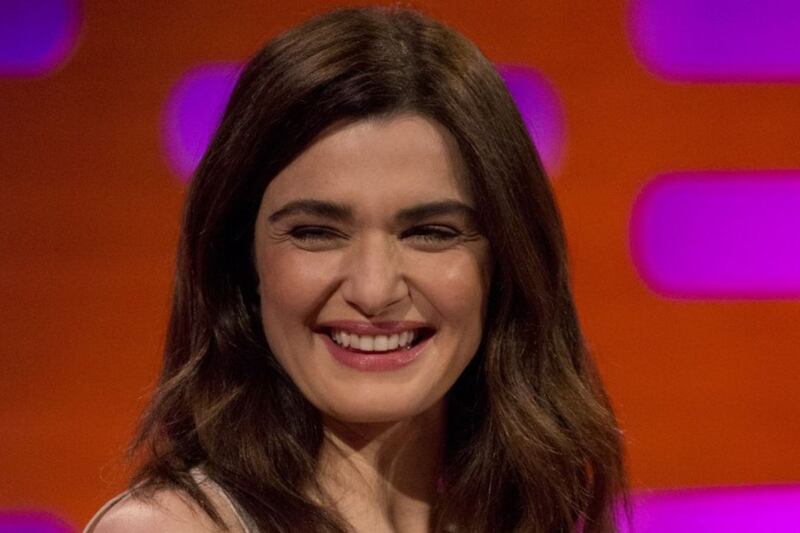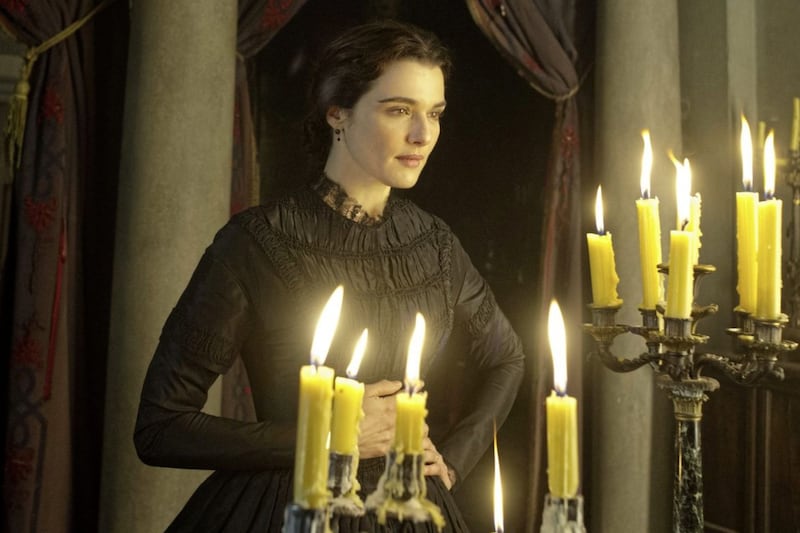RACHEL Weisz has long campaigned for more equality in Hollywood's "boys' club".
The Academy Award winner (she took home Best Supporting Actress for her role in The Constant Gardener) has a particular distaste for the tag "strong female", previously stating: "You never say to a male actors, 'You play lots of strong men', unless they play men with really big biceps!"
The conversation, London-born Weisz insists, should be far simpler.
"It would be great to have more female directors, just more leading parts for women," she explains, her tone defiant. "That they're the main character so it's a story about a woman, rather than just a story about a man with some supporting females.
"I'm not one for complaining too much because I think I don't know how much it helps," the 47-year-old quickly adds. "I just think women should do things by example and just get things made and done."
Weisz, who impressed in Yorgos Lanthimos's 2015 Cannes Jury Prize winner, The Lobster, alongside Colin Farrell, is on her way to doing just that. Subverting ageism and sexism in Tinseltown, she is racking up producer credits, including an adaptation of Naomi Alderman's novel, Disobedience, among others. She has also admitted to buying up the rights to novels (one being Susan Minot's Thirty Girls) where, as she puts it, "I can see parts for me to act in".
"Men develop and create their own roles as well, so it's not just unique to the female condition," she says, "But yeah, I'm just finding roles that I want to play."
Women with spirit appeal is the key: "Women who are transgressive in a certain way or stand up for what they believe in or are not afraid to be unliked to do what they believe in," she says. "Probably difficult, complicated characters.
"It's not that I want to be a villainess," notes Weisz, who is married to actor Daniel Craig. "But characters who are actually for me and are kind of delightful in their difficulty. It shouldn't be just difficult and annoying, so you're put off and you can't empathise with them," she points out, "But their aim is not to please."
It is apt, then, that her latest outing in Roger Michell's big-screen take on Daphne du Maurier's classic novel, My Cousin Rachel, puts her front and centre. The dark romance tells the story of a young Englishman who plots revenge against his beautiful cousin, believing that she murdered his guardian. It's a titular part Weisz could play with conviction.
"The whole fun of the film is to trying to figure out whether Rachel can be trusted, and I just love that the story is equally weighted both ways," she says. "I think it will divide people on the question of whether or not Rachel is up to no good.
"That's what makes it such an unusual love story and so compelling and haunting. It asks how much do you really ever know a person and can your impressions of someone go completely, devastatingly wrong?"
The chance to work with Michell was also a draw for Weisz.
"I've always wanted to work with Roger, as I've been a fan for a long time," she says. "I found that he's a director who really searches to find out what makes actors tick. He's always gentle and kind, but he's exacting. He knows precisely what he wants, and he also likes things to be surprising. There's nothing rigid or boring about the way he works."
Does she worry about the risk, translating du Maurier's world to film?
"I think every job is a risk," she responds. "It's a big collaboration, particularly with film, [because] it's a directors' medium. Everything might get cut... Not everything but you know, it's all a risk."
She has had to learn to let go, however: "It's a bit like life, you just don't know what's around the corner," says Weisz. "As much as we try and control things, try and be the author of our lives, you just don't know what's going to happen, right? You and I don't know what tomorrow's going to be like.
"We know vaguely there's a script, so it's the same with a film. You know the scenes you're going to say, but you don't know how they're going to go and how it's going to end up being put together."
But while she can relax somewhat in front of the camera, theatre, she believes, is "way more dangerous".
"You can't do it again. You can do it again the next night but you can't go, 'Oh excuse me I'd like to go back on that one', whereas in a film you get another take so there's a certain knife-edge danger that you get in a play," she declares.
It is a formula, despite years of stage experience (Weisz most recently trod the boards in an off-Broadway revival of David Hare's Plenty), that terrifies her.
"But if you didn't get scared any more it'd be time to give up," she insists. "You need the fear, it's like the steam in the combustion engine. I mean [you get] less and less terrified as the play goes on but it's a big act of concentration."
She confesses: "The first few nights you're so nervous you can't even remember what happened. It's like a blur; I guess maybe somebody would say that after getting married if they had a big wedding – I didn't have a big wedding, but you know people go to a big event and you can't remember it afterwards? It's like that."
Weisz and Craig married in 2011; they live in New York. The couple, who starred alongside one another in Broadway hit Betrayal, are private, eager to "protect" their relationship from the public eye.
"We value our private lives," reasons Weisz, who shares a son, Henry, with her ex-husband, director Darren Aronofsky.
Unsurprisingly the world of film and acting is sometimes a topic of conversation for the couple.
"You discuss it a little bit but I think for any couple work dominates their conversation whatever their jobs are," she says. "Sometimes you have to leave your work at work, but inevitably there are some discussions – but it can't dominate. I mean it shouldn't. I mean it would be boring to just talk about that."
"There's so many other things going on in the real world that are quite interesting and important, [we] can't just talk stories all the time."
:: My Cousin Rachel is in cinemas from Friday June 9.
